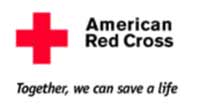FDA fines Red Cross 4.6 million for poor blood products
Food and Drug Administration fined the Red Cross $4.6 million after the latter did not make it to test blood donations and questioning donors.

Blood products from the Red Cross released from 2003 to 2006 contained about 4,094 unsuitable blood components. It was determined that the Red Cross had not performed the required blood tests. In addition, the organization did not question its blood donors on their eligibility.
It is worthy of note that the Red Cross collects about 6.5 million units of blood. The Red Cross is responsible for over 40 percent of the nation’s blood supply.
The Food and Drug Administration (FDA) is an agency of the United States Department of Health and Human Services and is responsible for the safety regulation of most types of foods, dietary supplements, drugs, vaccines, biological medical products, blood products, medical devices, radiation-emitting devices, veterinary products, and cosmetics. The FDA also enforces section 361 of the Public Health Service Act and the associated regulations, including sanitation requirements on interstate travel as well as specific rules for control of disease on products ranging from pet turtles to semen donations for assisted reproductive medicine techniques.
The Food and Drug Administration (FDA) is an agency of the United States Department of Health and Human Services and is responsible for the safety regulation of most types of foods, dietary supplements, drugs, vaccines, biological medical products, blood products, medical devices, radiation-emitting devices, veterinary products, and cosmetics. The FDA also enforces section 361 of the Public Health Service Act and the associated regulations, including sanitation requirements on interstate travel as well as specific rules for control of disease on products ranging from pet turtles to semen donations for assisted reproductive medicine techniques.
In the days prior to donating blood, many blood banks recommend that donors prepare themselves for a process that can temporarily weaken the body. Donors should check their local blood bank's guidelines, as requirements and recommendations vary. Many blood banks recommend that potential donors drink extra water and fluids before donating.
Western countries typically impose screening for blood donor candidates. In the past, it was the practice in America and other countries to separate blood donations on the basis of race, ethnicity, or religion, or to exclude certain groups from the donor pool on those bases. Currently, in the United States, these practices have been eliminated, and donor attributes are considered only in terms of their likelihood to affect the probability of transmission of disease. All blood products in the U.S. are labeled as coming from either "paid" or "volunteer" donors, with paid units being more likely to transmit infection. (Several other countries avoid paid donations altogether for this reason.)
In some countries, for example Paraguay, it is against the Law to receive any compensation, monetary or otherwise, for the donation of blood or other human tissues. The donor must sign a form stating that he or she is donating on a fully voluntary basis.
Other donor characteristics are also taken into account: starting in 1985, the American Red Cross and Food and Drug Administration policies prohibit accepting blood donations from gay/bisexual men, specifically from any "male who has had sex with another male since 1977, even once," or from IV drug users or recent immigrants from certain nations with high rates of HIV infection.
Subscribe to Pravda.Ru Telegram channel, Facebook, RSS!


